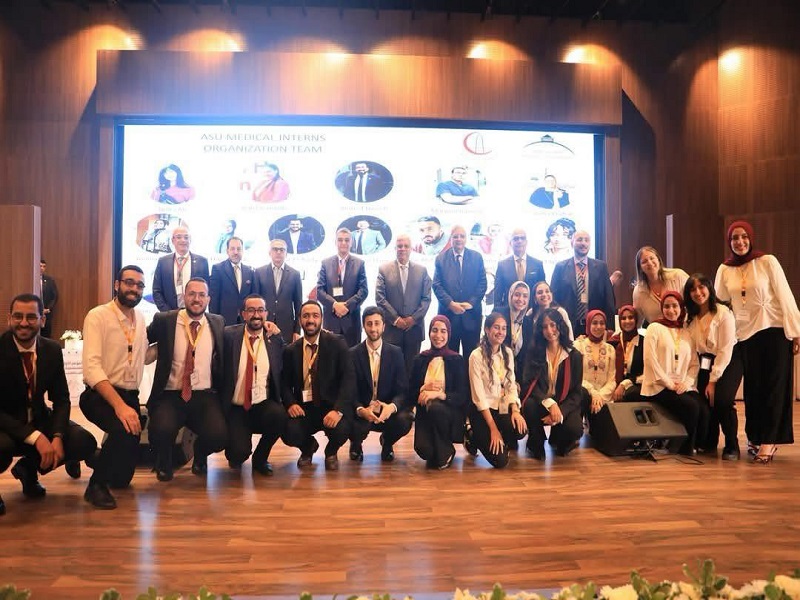The Minister of Higher Education and the President of Ain Shams University witnessed the closing ceremony of the first conference of university hospitals at Ain Shams University
Prof. Ayman Ashour, Minister of Higher Education and Scientific Research, witnessed the closing ceremony of the first conference of university hospitals, which was organized by the Supreme Council of University Hospitals in cooperation with Ain Shams University, in the presence of Prof. Mohamed Awad Tag El-Din, Advisor to the President of the Republic for Health and Preventive Affairs, Prof. Mohamed Diaa Zain El-Abedeen, President of Ain Shams University, Prof. Ahmed Taha, Head of the General Authority for Accreditation and Health Control, Prof. Hesham Steit, Head of the Egyptian Authority for Unified Procurement, Medical Supply and Medical Technology Management, Prof. Omar Sharif Omar, Secretary of the Supreme Council of University Hospitals, and Prof. Ahmed Anani, Minister’s Advisor for Health Policies.
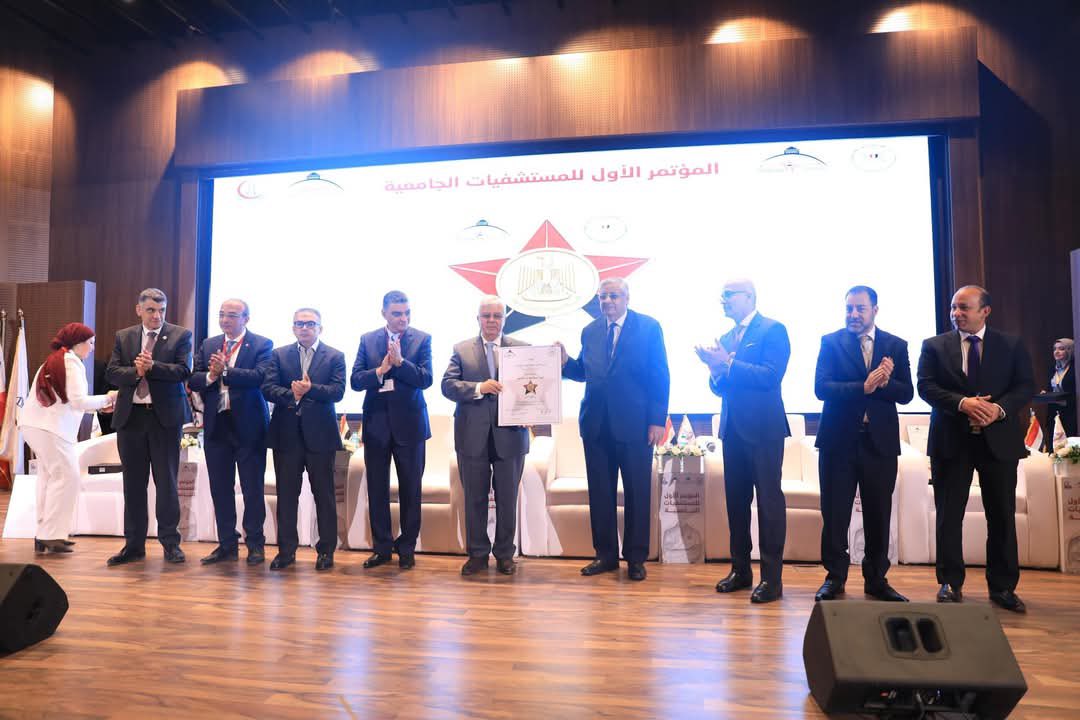 |
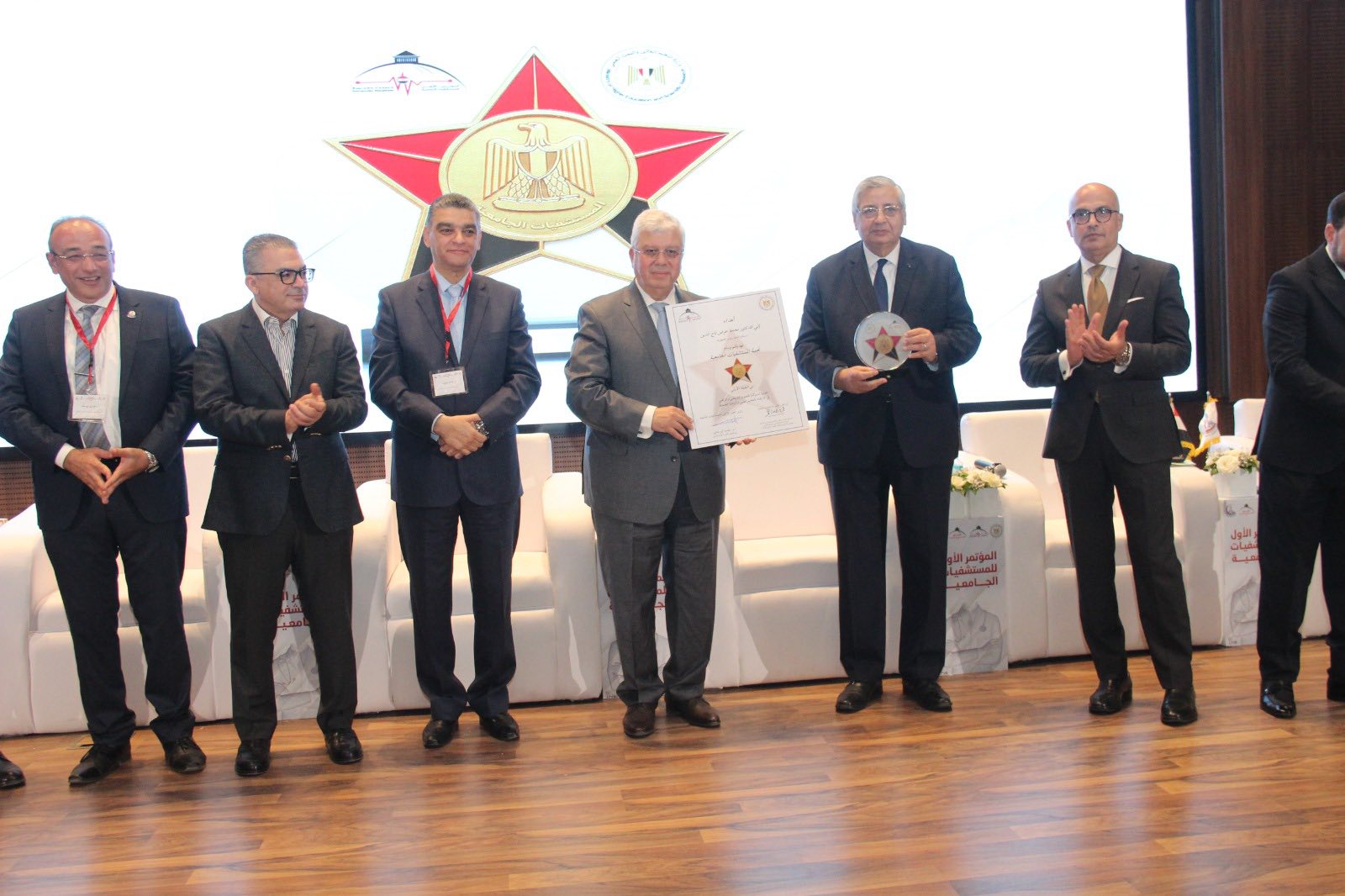 |
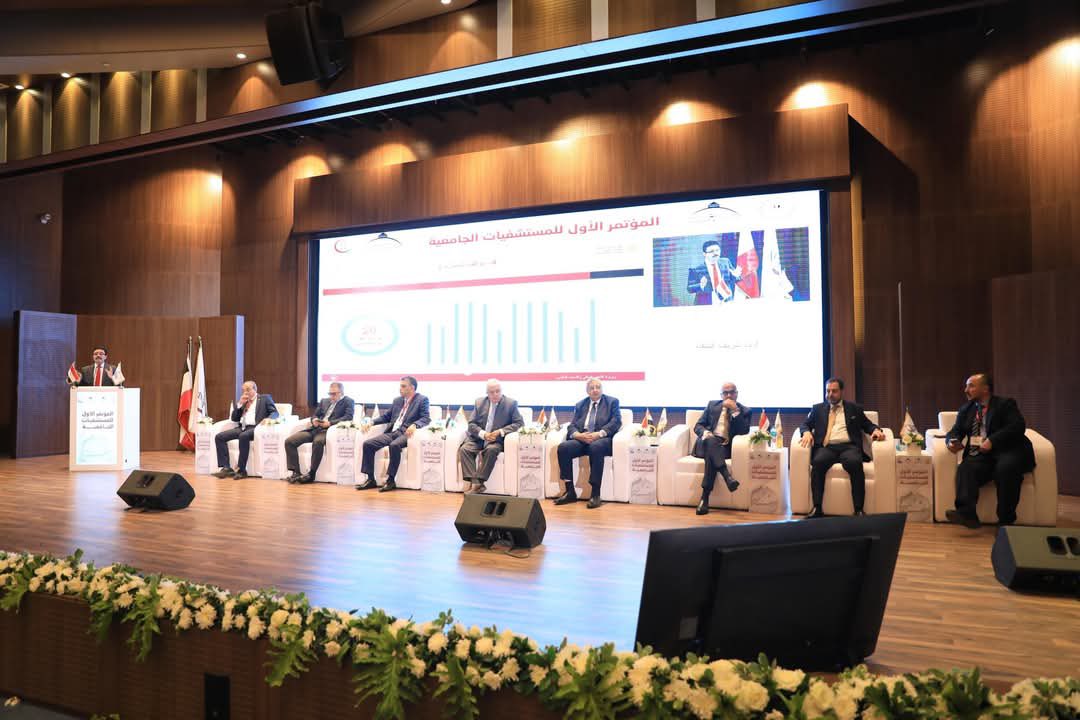 |
||
The conference was also attended by Prof. Ali Al-Anwar, Dean of the Faculty of Medicine at Ain Shams University, and Prof. Tarek Youssef, Executive Director of Ain Shams University Hospitals. A number of presidents of public and private universities, deans of medical faculties at Egyptian universities, directors of university hospitals, academics, experts, and health policymakers also participated in the conference, which was held in the Mahlawy Auditorium at the Faculty of Medicine at Ain Shams University.
At the beginning of his speech, Prof. Ayman Ashour expressed his sincere appreciation and gratitude to all those involved in organizing the conference, extending his greetings to the chairmen of the boards of directors, executive directors, and directors of university hospitals, as well as to the doctors, faculty staff, nursing staff, and all staff at university hospitals across the country, in appreciation of their dedication and continuous efforts in serving the healthcare sector. He also expressed his thanks and appreciation to Ain Shams University for hosting the conference.
The Minister emphasized the importance of the conference, which transparently addresses the reality of the country's 145 university hospitals, which receive approximately 25 million patients annually, and its efforts to provide practical solutions to existing challenges. He praised the high-level discussions during the sessions he attended, explaining that the conference's most notable feature was its convening of all relevant stakeholders to develop clear visions for resolving problems. He also commended the amendment to the law regulating work in university hospitals, which enhances coordination between university hospitals, the establishment of a central database, and the development of monitoring and licensing mechanisms, contributing to improving the quality of health services.
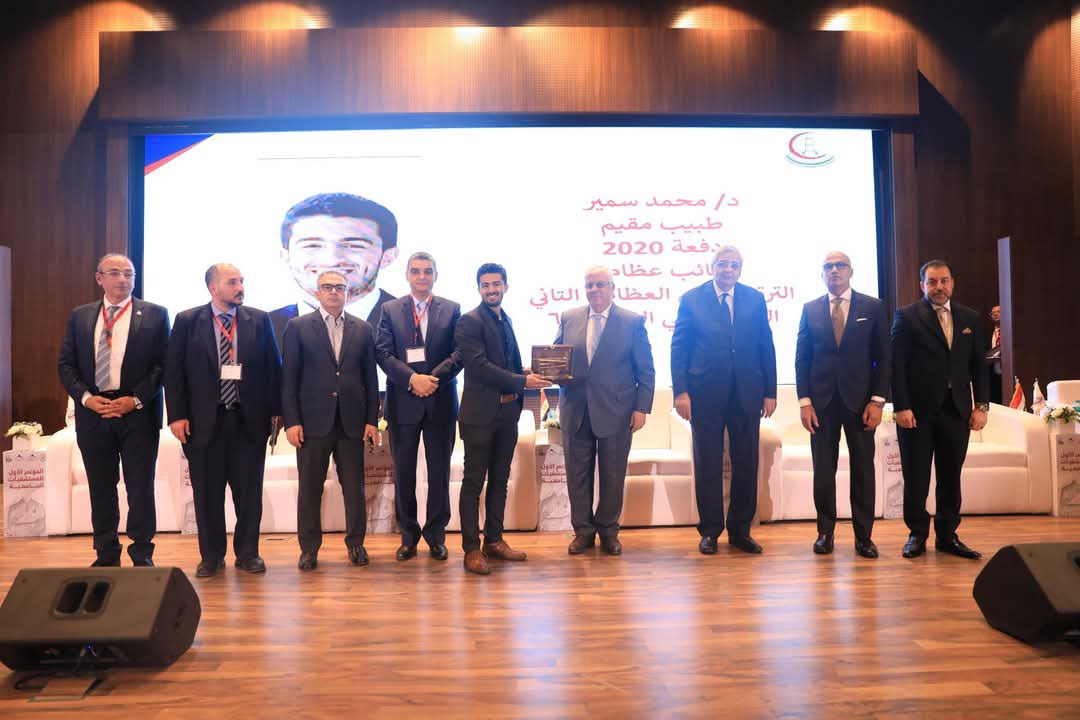 |
 |
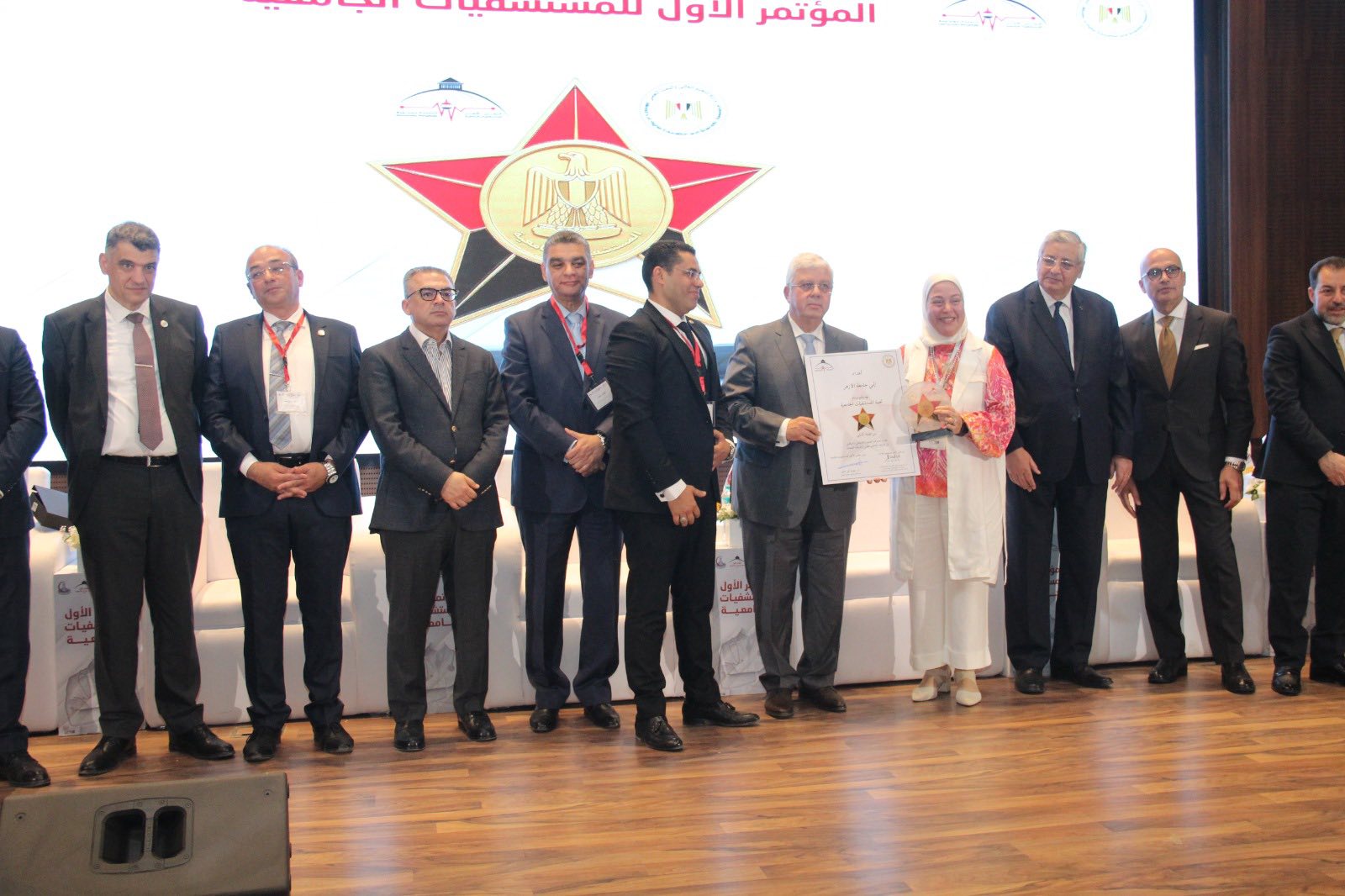 |
||
Prof. Ayman Ashour praised the university hospital automation project, considering it a pivotal step toward developing these hospitals and enhancing their performance. He explained that automation provides accurate statistics and clear indicators regarding the level of services provided to patients, which contributes to better allocating resources and capabilities to support development efforts and improve the healthcare system in university hospitals.
The Minister stressed that university hospitals are not just medical institutions, but rather an integrated system that combines education, scientific research, and training, in addition to providing medical services, which distinguishes them from other health institutions in the country. He pointed to the significant development witnessed recently in medical education, highlighting the efforts of the Supreme Council of Universities in restructuring various sectors, most notably the medical sector, which includes public, private, and civil universities. He explained that the number of university hospitals affiliated with private universities has reached 10 hospitals, stressing that the state will not approve the establishment of any new university hospital unless it meets all the required academic and technical standards.
Prof. Ayman Ashour expressed his hope that the conference would yield practical and implementable recommendations that would contribute to the development of the health system, affirming his full support for implementing these recommendations and transforming them into effective steps on the ground.
For his part, Prof. Mohamed Awad Tag El-Din praised the important role played by university hospitals in providing distinguished healthcare and their excellence in many medical specialties. He emphasized their pioneering role in the fields of training, medical education, and scientific research, emphasizing the importance and necessity of these hospitals joining the comprehensive health insurance system to enhance the integration of health services provided to citizens.
During the closing session, Prof. Sherif Keshk, Assistant Minister for Smart Governance, gave a detailed presentation on the university hospitals automation project, which is one of the strategic projects to develop the digital infrastructure of the university health sector. The project aims to equip hospitals with the necessary information infrastructure, and provide maintenance and training on operating a unified system for managing university hospitals. The project is being implemented in 80 hospitals affiliated with 12 public universities, including the universities of: (Menoufia, Assiut, Beni Suef, Cairo, Alexandria, Ain Shams, Al-Azhar, Mansoura, Qena, Tanta, Suez Canal, and Aswan).
The project aims to improve the efficiency of healthcare services and implement governance across hospital operations. This is achieved through a unified medical record system for each patient, enabling accurate tracking of cases and the development of a comprehensive health map of diseases nationwide. This map supports decision-makers in improving the quality of healthcare, in addition to providing accurate databases for scientific research. The current phase of the project includes the operation of 20 hospitals, with 30 additional hospitals scheduled to be operational within three months, followed by 30 more within six months. The project is expected to be fully launched by the end of this year.
The closing session also featured a documentary film about the Ain Shams University Medical City project, which is being developed to enhance its ability to provide comprehensive healthcare services befitting Egyptian citizens. The city's general site has been developed, along with the construction of the city's outer wall and gates. The film highlighted the extent of the ongoing development in infrastructure and medical equipment. Ain Shams University currently houses nine hospitals and six specialized medical centers, all of which contribute to supporting the university's healthcare, education, and research systems.
The closing ceremony honored a number of young resident and intern doctors in recognition of their effective contributions to the preparation and organization of the conference. A select group of doctors who have published scientific research in prestigious international journals were also honored, reaffirming the university's commitment to supporting scientific research and academic excellence. Former secretaries of the Supreme Council of University Hospitals were also honored in recognition of their contributions and efforts during their tenure.
During the closing ceremony, the "University Hospitals Star" shield was presented to Prof. Ali Pasha Ibrahim, the first dean of Kasr Al-Aini Faculty of Medicine; Prof. Ahmed Lotfy Abu El-Nasr, founder of the National Cancer Institute and pioneer of oncology in Egypt; Prof. Mohamed Awad Tag El-Din, former Minister of Health and Advisor to the President of the Republic for Health and Preventive Affairs; and Prof. Hussein Khaled, former Minister of Higher Education. This recognition is in appreciation of their distinguished contributions and efforts in supporting university hospitals and enhancing their role in serving the health sector.
The "University Hospitals Star" shield was also awarded at the institutional level to a number of university hospitals, in recognition of their outstanding performance and role in providing health and educational services. The universities included: (Cairo, Alexandria, Mansoura, Ain Shams, Assiut, Tanta, Al-Azhar, Zagazig, Minya, Sohag, Qena, and Benha).


.svg)

